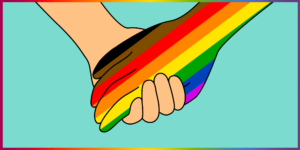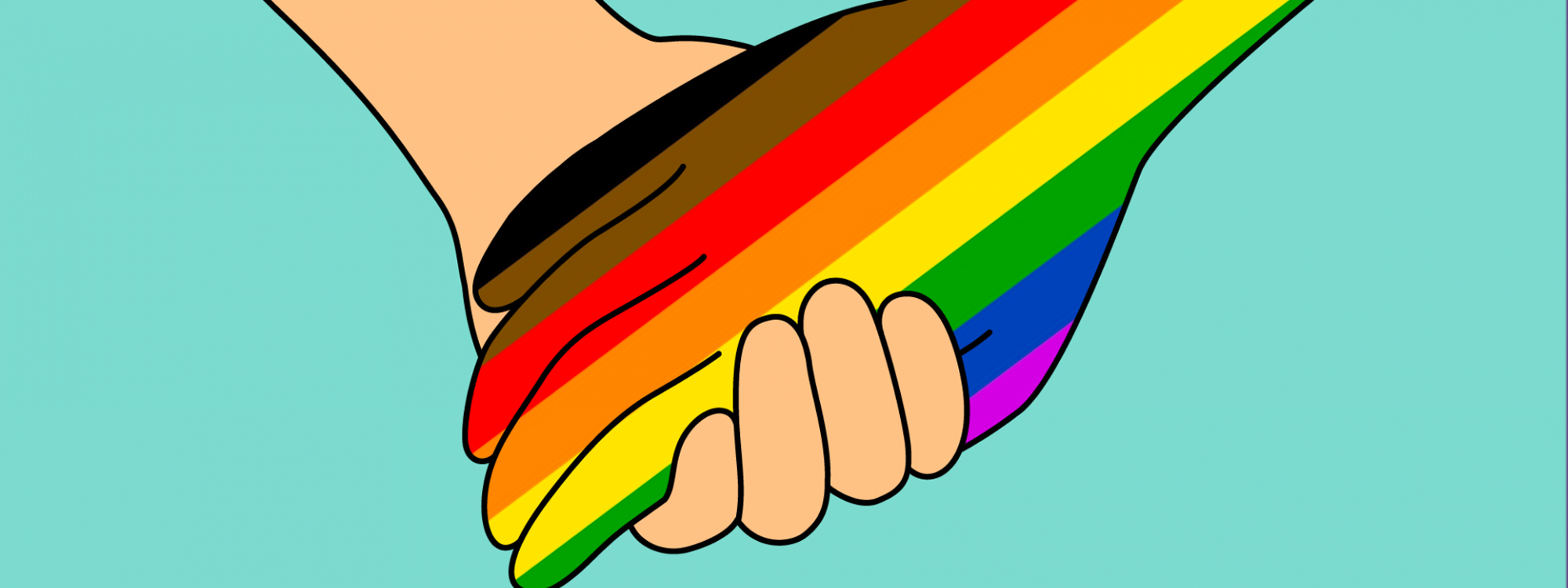Being An LGBTQ+ Ally
![]()
When it comes to the subject of sexuality, gender, and sexual orientation, preconceived ideas around what the ‘norm’ is are changing. Heteronormativity is becoming outdated. On a large scale, more and more people are embracing fluid notions of sex and gender instead of fixed identities.
There have been momentous strides in gay rights liberation movements over the past 50 years. Yet, we still need to fight for the expansion of LGBTQI+ social space and gay openness. Global movements need collaboration. When women were denied the right to vote, they marched, protested, wrote, lobbied and petitioned. They did that to persuade men that equal voting rights was the right way forward. It took decades for the law to change, but eventually it happened. Similarly, in order to progress LGBTQI+ rights, we need the support of our hetero cisgender allies. This support will help us achieve equal and progressive societies, globally.
What is Allyship?
![]()
 One definition of an ally is:
One definition of an ally is:
‘A person who is a member of the dominant group who works to end oppression in his or her own personal or professional life by supporting and advocating with the oppressed population.’
Identifying as an ally is an extremely valuable stance to take in helping those on a long road towards LGBTQ+ rights and equality. There are two fundamental features in an ally. The first one is support towards equality. The second is acceptance of someone for who they are, without regard for their sexual orientation or gender identity.
So being an ally means having an active role in helping to dismantle oppression and discouraging discrimination. It also means including marginalised communities and encouraging LGBTQI+ people to have pride in themselves. More allies can make the world seem like a safer place for LGBTQI+ communities.
The world sees the UK as having a diverse and progressive social system. But looking at the increasing reports of bullying and discrimination, we still need to do a lot of work to combat discrimination. (LGBT hate crime rose by 144% between 2014-2018). To put things into perspective, the figures below are from Stonewall (UK-based LGBT rights charity).
- Half of black, Asian, and minority ethnic LGBT people (51%) have experienced discrimination or poor treatment from others in their local LGBT community because of their ethnicity.
- More than a third of LGBT staff (35%) have hidden that they are LGBT at work for fear of discrimination.
- Almost one in five LGBT people (18%) who were looking for work said they were discriminated against because of their identity while trying to get a job.
- Almost one in five LGBT staff (18%) have been the target of negative comments or conduct from work colleagues because they’re LGBT.
- One in five LGBT people have experienced a hate crime or incident because of their sexual orientation and/or gender identity in the last 12 months
- The number of LGBT people who have experienced a hate crime or incident in the last year because of their sexual orientation has risen by 78% since 2013
- Nearly half (45%) of LGBT pupils – including 64% of trans pupils – are bullied for being LGBT in Britain’s schools
- 7 in 10 football fans who’ve attended a match have heard or witnessed homophobia on the terrace.
Practical Steps
![]()
1. Talk Openly
Read up on LGBTQI+ issues and debates, laws, rights, celebrations! The more you know and the more conversations you have, the more understanding and visibility around LGBTQI+ communities and the issues that still exist.
2. Don’t hold back from difficult conversations
They often seem difficult when someone needs to be called out, and the correct way of doing so takes many forms. Some approaches need to be direct and some need to be a bit softer. The important thing is not to shy away from an important conversation in order to preserve your own comfort. If you feel awkward, remember that this it isn’t about you. It’s about creating shared acceptance for those who have long been perceived as other.
3. Take fear out of the equation
The LGBTQ+ community instead needs people to show up; we would rather you show up imperfectly than not show up at all. When it comes to an incredibly fluid subject, it’s impossible to know the best or most eloquent way of getting your words across. But the point is to make a start and share what you know.
4. Understand the origin and meaning of Gay Pride
Have you ever wondered why straight people don’t have a pride parade? Or maybe you think gay pride is a celebration of being gay?
Gay Pride started as an annual event following the infamous Stonewall Riots in 1969. The riots began after police once again raided a gay bar in New York, but this time the patrons took a stand. 3 day-long protests and riots began, and ultimately the gay rights liberation movement began directly thereafter. A pride parade is held each year in June to commemorate the events. Gay Pride celebrates freedom of choice and often acts as a celebration of freedom from persecution for simply being. Gay pride origins are an important and continued avenue for activism.
5. Understand that coming out isn’t blasé… It should be empowering
After speaking with LGBTQI+ friends, there is a marked consensus on this point. Many gay and queer people reckon with a feeling of otherness and ‘being different’ for many years leading up to the understanding around their identity. The eventual ‘coming out’ can be a very significant moment. While a celebration or marked commendation is not needed, responses to someone’s ‘coming out’ as though it is expected, unusual, or irrelevant, can diminish the importance of something which should be empowering.
6. Read about trailblazers who paved the way
So many characters have changed the course of gay rights and amplified discussions that needed to be heard. There are too many to name, and they all added something unique: To name just a few: Marsha P. Johnson. Audre Lorde. Harvey Milk. Barbara Gittings. Ian McKellen.
7. Support LGBTQ+ businesses and charities
Smaller LGBTQI+ charities receive a majority of their fundraising income leading up to Pride and during the month of June. These past few years, with many parades having to cancel, funding cuts had severely affected these charities that are in need of support. See smaller, local charities as opposed to the well-known UK names.
8. Stop supporting organisations that promote hate
Turn your support into action
Allyship is about working to develop a true understanding of what it means to be LGBTQI+ in a world where simply being can have serious repercussions, legal and otherwise. Do your part in helping to break down the stigma and discrimination which continues to oppress the LGBTQI+ community. Ask questions, read books, watch movies on the history of Pride, the stonewall riots, the drag community, download episodes of Queer Eye!
We’re living through an age where sexuality is no longer one fixed definition, and neither is gender. While many societies are embracing changes and welcoming diversity, others are constrained by archaic laws or cultural norms, thus prompting the continued fight towards equal rights for everyone.
The gains won can be easily lost by the policies and interests of those in power. The gay rights movement is one that needs help, collaboration, and collective understanding around its significance for marginalised individuals.
Being an ally is to support those who deserve a sureness in being their full selves and being proud. At ShelterBox, we are committed to supporting LBGT+ staff, volunteers and ultimately those in the countries we support too. We are at the start of this journey. But we recognise that we have a lot of work ahead of us to ensure that everyone we work, or volunteer, with feels not that they are included but that they belong.
You can learn more about our work around Equality, Diversity and Inclusion here.
Author: Lucy McMenamin

